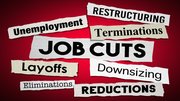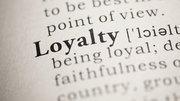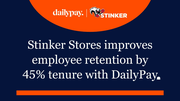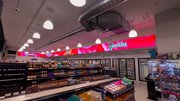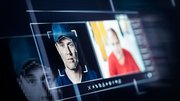Article
Self-checkout and alcohol: A dangerous mix?
New research about minors, alcohol and self-checkout may prompt legislation in California.

July 19, 2009
Self-checkout machines have been a mainstay in America's grocery stores and supermarkets for some time, but there is growing concern that some shoppers may take advantage of the technology to illegally purchase alcohol.
A study published in June by a UCLA Law School clinic and the advocacy group Los Angeles Alliance for a New Economy, or LAANE, has highlighted that very issue. The report, "Self-Checkout: Is it Reliable for Selling Alcohol," presents data that has troubled some readers, particularly in the state of California.
In conducting the study, the groups encountered several factors that, either alone or in combination, might allow the illegal purchase of alcohol at a self-checkout machine more easily than at a traditional checkout lane, either by minors or customers who are already intoxicated.
According to the research, in two-thirds of their visits to specific grocery chains, participants saw only one employee working at the self-checkout area, and in five instances, they saw no self-checkout attendant at all. Additionally, though it is the industry standard for clerks to check the ID of anyone who appears under the age of 30, one-third of the participants reported that they were not asked for their ID, and only one participant was ever asked to give her date of birth.
"In combination," the study said, "low numbers of employees supervising self-checkout machines, obstructed views and long wait times enhance the risk of error in monitoring alcohol purchases and may make it easier for customers to purchase alcohol illegally, either through deception or theft. These results suggest the absence of careful scrutiny that would allow employees to judge either age or level of inebriation."
The study's results also indicate that in eight instances, the self-checkout system didn't lock when alcohol was scanned, and that in 11 cases, participants were able to "override" the system, either by scanning another item, swiping a credit card or both. In total, the study says participants were able to override a locked self-checkout machine or bypass the employee-override process 19 times out of 97, or in 20 percent of the visits.
According to the report, more than 2 million Americans under the age of 21 drink alcohol each year.
"The results of this study strongly suggest that the use of self-checkout machines can increase the ease with which minors and those who are inebriated are able to purchase alcohol," it said.
Is the technology to blame?
The self-checkout/alcohol topic has become a high-stakes issue for some California retailers.
Last week, the state's Senate heard testimony regarding a bill that would prohibit "off-sale licensees from selling alcoholic beverages using a point-of-sale system with limited or no assistance from an employee of the licensee."
In other words, bill AB 1060, authored by Democratic Assemblyman Hector De La Torre, would require the sale of alcohol to be routed only through a traditional checkout lane.
But does self-checkout technology really facilitate the illegal purchase of alcohol, as the groups and the bill's authors claim? While the study attributes a great deal of the problem to a lack of employee oversight, it also very clearly places blame on the technology itself, and some in the self-service industry aren't sure that's fair.
"We're aware of no malfunction that would allow the system to operate as the study's authors claim," said Dusty Lutz, director of NCR Corp's SelfServ Checkout efforts. "We believe that they had a misunderstanding of how the technology is performing the alcohol age-check."
Lutz says NCR self-checkout machines, which are deployed by some of the chains surveyed, allow retailers a configuration option whereby the scanning of alcohol would not necessarily prevent the shopper from scanning more items before her age is verified. However, this configuration feature may be mistakenly referred to as a "computer failure" in the UCLA/LAANE study.
"In many cases, retailers have the system configured to allow the age check to be occurring in the background, so the shopper is not interrupted while they're scanning other items," he said. "Operationally, we rely on the retailers to make sure that the training is in place to watch over the lanes and to provide the appropriate regulatory oversight."
Fresh & Easy, a Tesco chain with an all assisted-checkout business model that LAANE has criticized in the past, says it's holding up its end of the bargain. The chain uses NCR's SelfServ Checkout technology.
"We take our commitment to be a good neighbor and a responsible retailer of alcohol very seriously, and we've put a considerable investment in our training and systems to ensure that the responsible sale of alcohol occurs at our stores," said Brendan Wonnacott, a spokesperson for Fresh & Easy. "The bottom line is, Fresh & Easy team members are always there monitoring what's going on."
And Wonnacott maintains that the store's machines perform the age-verification process just fine.
"Alcohol purchases cannot be finalized without an intervention from an attendant," he said. "So anytime an alcoholic beverage is scanned, the transaction freezes, and it requires assistance from a clerk. Our system is advanced, and we're pleased with how the system operates."
Assemblyman De La Torre's office did not return a call for comments.
The future of self-checkout in California
Whether a real or perceived malfunction is to blame, one thing is clear to the authors of the UCLA/LAANE study and bill AB 1060: The retail and self-checkout industries need to do a better job preventing the illegal purchase of alcohol.
"At a minimum, you want to ensure that you're dealing with the lack of supervision," said Roxana Tynan, LAANE's deputy director. "So if you have one person, they don't have an unreasonable amount of self-checkout stalls that they're supervising and that they've got a clear view of what's happening at each of those stalls."
But Tynan, along with De La Torre and bill AB 1060, ultimately suggest a more dramatic change.
"The safest option is, simply, you ban the sale of liquor at self-checkout," she said. "And, certainly, we're supportive of De La Torre's legislation that's been proposed on this."
But the companies behind the technology see things differently.
"This is just my opinion, but I think that's a shame," said Kenneth Duffy, IBM's kiosk offering marketing manager, when he learned of the proposed legislation. Like NCR's Lutz, he is skeptical about the claim that "computer failures" allowed the study's participants to purchase alcohol.
"To my knowledge, we've never had a retailer come back and say 'We're having issues with people getting products illegally by getting around the system,'" he said.
None of the chains in the survey use IBM's self-checkout systems.
Duffy believes retailers and their employees may not be doing their part to prevent minors from purchasing alcohol.
"The store managers have to be aware and have to be monitoring the health of that system," he said. "The employees that are specifically assigned to look after that need to be trained on it and need to be adequately educated on what their responsibilities are."
But how much accountability rests with the makers of the self-checkout machines?
"I think the onus, the responsibility on the manufacturers and the suppliers, is to provide the highest quality hardware and software that complies with and conforms to all the necessary regulatory requirements," Duffy said. "Beyond that, unfortunately, it really is out of our control how, then, the retailer or the customer employs all of the features."
Regardless of who or what is at fault, the UCLA/LAANE study has put NCR on the defensive. The company recently issued a statement saying that human error was the more likely cause of the self-checkout breakdowns, not the machines themselves.
"NCR's experience is that retailers should and do consistently monitor to ensure that the correct procedures are in place and that staff are applying them correctly and consistently," the statement said. "However, it is also very important to understand that the LAANE study incorrectly describes how NCR self-checkout works and therefore its conclusions regarding self-checkout are likewise incorrect."
In the statement, NCR also notes that the State of California Department of Alcoholic Beverage Control has conducted its own field tests and found that self-checkout systems "successfully prevented sales of alcohol to minors" and that it has no evidence and has received no complaints indicating otherwise.
The California Department of Alcoholic Beverage Control could not be reached for comment.
For now, the fate of bill AB 1060 is unclear. Fresh & Easy's Wonnacott and LAANE's Tynan confirmed that its review in the California Senate was stalled last week and that it may be back up for review in the future.
In the meantime, though, self-checkout manufacturers say they will continue to encourage grocers to step up their efforts to keep alcohol out of the hands of minors.
"I think, really, all it takes is a little bit of time and resources to train the employees to make sure that they recognize that this is a big deal," Duffy said.
UPDATE: According to a news release from Assemblyman De La Torre's office, bill AB 1060 was passed by the California Senate Government Organization Committee in a unanimous 8-0 vote. The bill will next be heard in the California Senate Appropriations Committee in August.
 ChatGPT
ChatGPT Grok
Grok Perplexity
Perplexity Claude
Claude